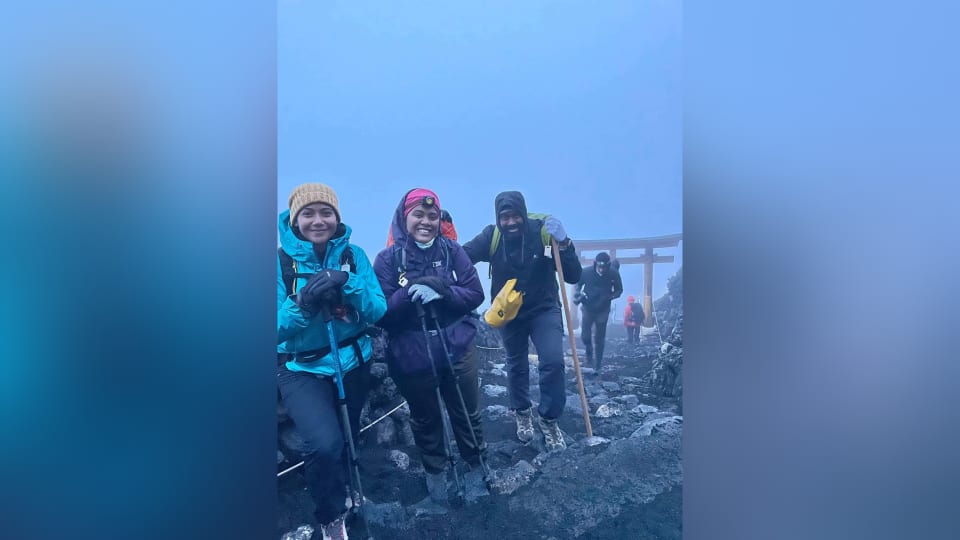Marine biologist Viliame Waqalevu has come to love his new hobby of scaling some of Japan’s highest mountains.
The man who hails from Nabouono, Udu, Vanua Levu, said his hobbies usually revolved around the ocean, but that changed after moving from the seaside city of Kagoshima to join his wife in Kyoto which is surrounded by mountains.
“I decided to try out new land-based hobbies such as long distance cycling and hiking,” he said.
“I came to Japan to pursue my PhD degree at Kagoshima University in 2015 and graduated in 2019 before I was contracted to a France-based research institute in Paris as a post-doctoral researcher.”
“But my work was affected by COVID-19 restrictions so I decided to move back to Japan to join my wife, Sainimere, who is pursuing her own PhD at Kyoto University.”
He said he used cycling to prepare for long arduous expeditions in the mountains and he cycled over 1000 kilometers in one particular trip.
“The longest cycle I did in a single trip was 235 kilometers around Japan’s largest lake, Lake Biwa, which took three days to cover.”
“This also prepared me for my hike up Mount Haku, which is one of three of Japan’s most sacred mountains and the tallest peak west of the Southern Alps at 272 metres.” The couple has successfully conquered some of Japan’s famous peaks including its highest landscape, Mount Fuji (3776 meters, Mount Kitadake (3193 meters), Mount Ainodake (3190 meters) and Mount Notoridake (3050 meters).
“We even celebrated our seventh wedding anniversary by hiking up Mount Ibuki (1377 meters), which is famous for its rich variety of wild animals and plants.”
“We encourage young Fijians keen on studying abroad to try Japan a country rich in nature, culture and history.”
Mr Waqalevu said the most endearing aspect about Japan was their consideration for others.
“Japanese people are known for being super-polite and I believe this is their cultural trait of considering others before themselves.”
“Keeping your phone on silent when in public transport so as not to disturb other travelers and removing shoes before entering a household to help keep the home clean.”
He said such practices taught them to take responsibility for their belongings and their surroundings.
“There are many similarities between Fiji and Japan and the one that sticks out for me is ‘omotenashi’, a Japanese term for their mindset of hospitality.
“As you enter stores or restaurants, expect to hear the bellowing welcome of ‘irasshaimase’ (welcome, please come in) and ‘arigato gozaimashita’ (thank you very much) as you exit.
“In Fiji, we have our own sort of hospitality culture such as calling people over to share our food, and there is no expectation of the visitor to bring food except that they come and share the meal with you.”

